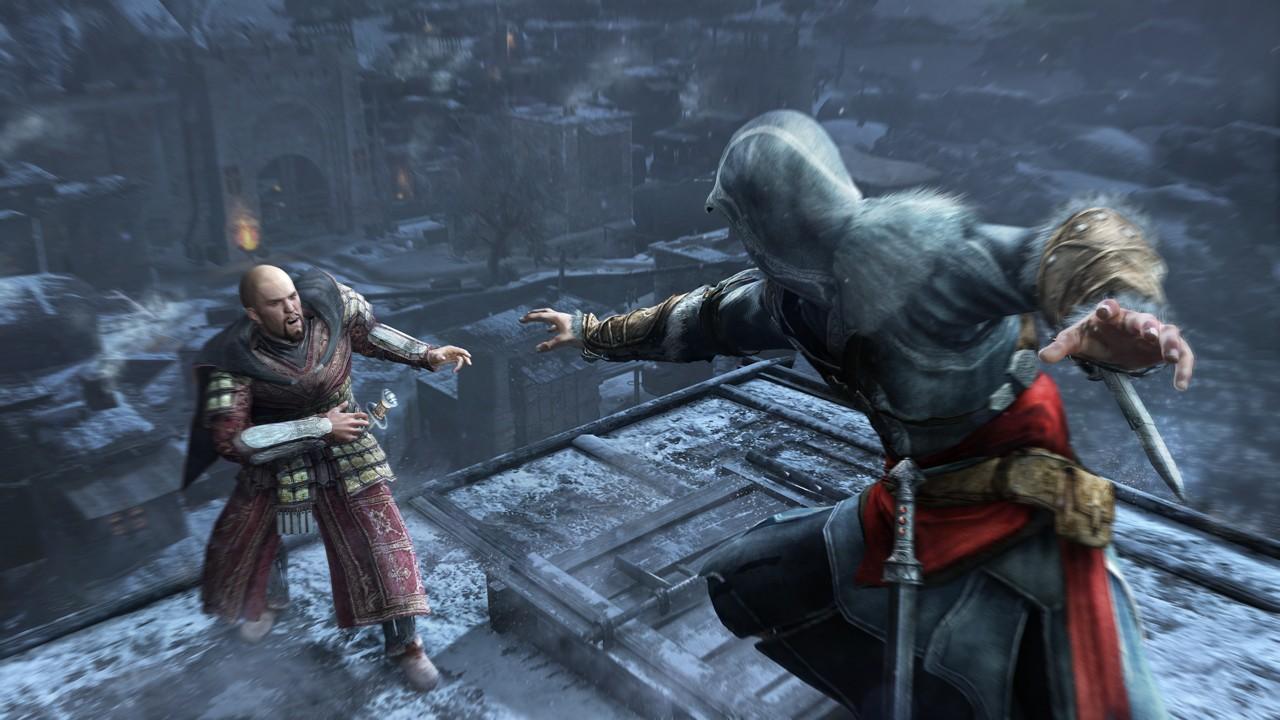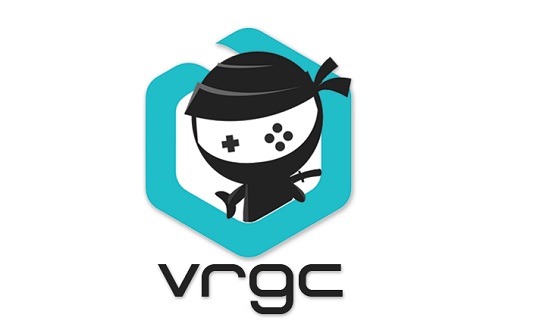It has been a year since the last Assassin’s Creed game and so to be presented with another so soon is a bit of a dream come true for some, but perhaps not as welcome for others. Assassin’s Creed Revelations is part of what was a planned series of games focusing around the character Ezio Auditore and the original protagonist Altair. Revelations wraps up the story for both these characters and perhaps paves way for a new direction for a series that has done extremely well coming in as a new IP for this generation. Aside from any previous accolades though, does Revelations provide a fitting end for Altair and Ezio or is there something amiss in the Ottoman period the game is set.
Gameplay:
Having enjoyed the antics of Altair in Assassin’s Creed, revelled in the improvements in Assassin’s Creed II, enjoyed the multiplayer angle of Brotherhood, being faced with Revelations has been an interesting prospect. Whilst the core mechanics of game are essentially the same thing as last year’s offering, the setting and story are the key components to digest here. This time we get to play as a young Altair and a much older Ezio which offers a nice contrast not seen before, although for the majority of the game until we’re offered a flashback moment with Altair, Ezio is without a doubt the main character. Revelations does a grand job of portraying Ezio’s need for answers as he hunts for various keys as part of a bigger puzzle. The flashbacks to Altair offer more insight into the motivations behind Ezio’s plight, however, woven into the storyline, and perhaps predictably, a love interest plays a big part this time. It’s an interesting layer to add to a game based on an acrobatic assassin who kills people, but in many ways adds a bit of maturity to the Ezio character that wasn’t present before, and in this regard works. There’s some additional Desmond moments to be had as well, although this time are strategically placed separate to the main story where largely the choice of digging deeper into Desmond’s world via first person actions is optional.
The game play still revolves around the hybrid platforming, free-roaming element of the original games, spiced up with the same reasonably solid combat and fused with a slew of side activities. The addition of meta games such as the tower defence style game where Templars attack your bases and need you to direct your assassins to take them out, are understandable inclusions, but act as mere distractions to the main story path. The game is simply littered with distractions, and to be frank, having spent hours doing them in Assassin’s Creed Brotherhood, feels a bit like a chore doing them all over again. Thankfully most of the side activities are not needed to be played in order to plough through the story and are there for those wanting something to do after its completion. For the most dedicated fans, there is at least plenty to do and in this regard the complaints of the original game a distant memory.
The story missions and their locales are well thought out, but in some ways feel less puzzling than their counterparts in the other games. The biggest problem is found when the game seems to hold your hand, not only in directing you where to run and jump, but also in terms of the placement of the tools used to help you. For example, one mission requires you to poison a target from within cover. The placement of the tools are laid right before you, offering no means of thinking for yourself, and making the tasks a bit routine. This is perhaps the biggest problem with the Assassin’s Creed gameplay, and without any sort of definable evolution from the previous game does come across a bit stale unfortunately.
Graphics:
Graphically the game looks as good as it always has done, offering similar levels of finesse seen in the last game. You’ll see impressive lighting and shadow effects across Constantinople (1511 AD) via a natural day and night cycle, streets filled with cloned NPCs full of colour and reasonably well animated, highly detailed character models for the main cast, and a game which shows that open world can look mightily impressive indeed. There’s still a great portrayal of scale when reaching an elevated viewpoint and activating it as the camera pans around you, before diving off into a haystack below. This element which perhaps captivated audiences the first time is very much worked here as it has done in each game. There are a few glitches, and sometimes the loading can take a while when warping areas, but for the most part the engine works well for all that is crammed within it.
Sound:
The audio remains of a high quality with some excellent voice acting for the main characters. There’s some real belief in Ezio this time as he warms to love interest Sofia, and is acted by both parties very well. Even though the option to change language is available, it does take away from the immersion when listening to the phoney accents and repeated phrases of the NPCs. That said, the audio when it works is masterful with its script and engaging with its ambient sounds and music which is what you want in a video game.
Longevity:
If you’re jumping into Revelations for a bit of closure with the story then you’ll be pleased at a reasonably lengthy campaign on offer. The side activities whilst integrated into the story will take a number of additional solo play hours to complete, so no real complaints there bar a lack of originality. For added challenge the multiplayer makes a return with its crowd based gameplay, although the inclusion of a pure deathmatch style game is actually quite a welcome addition. Whether you drown yourself into the mesmerising and well told story, or dabble into the game’s comprehensive and fleshed out multiplayer, there’s enough to do to keep you well and truly hooked. If you’re a vet from Brotherhood, then sadly, the feeling of repetition cannot be ignored. Revelations does represent good value for money, but this is somewhat more relevant to those joining the series for the first time.
Overall:
Revelations is a remarkably well polished game that does a grand job of wrapping up the story of the previous outings as its main objective. To wave farewell to two beloved characters and leaving the gates open for whatever comes next is a good move because any more of the same is likely to begin to lose appeal. As it stands, aside from the story, a hook blade, bomb making, and some minor mini games/adjustments and what you have is essentially the same game as Brotherhood repackaged. There does seem to be elements missing such as the traversing to other cities across the countryside, which is lost and a big shame. Revelations familiarity in itself is something you’re either going to lap up with pure glee, or look upon with distaste. In this regard Revelations can only be deemed a very good game as opposed to being something more intriguing and commanding greater appraisal. Hopefully the next game offers up more changes in not only looks, but core gameplay mechanics as well. Revelations does come recommended as a final part of the series, but it certainly in many ways, is not the best the series has to offer.
8/10




